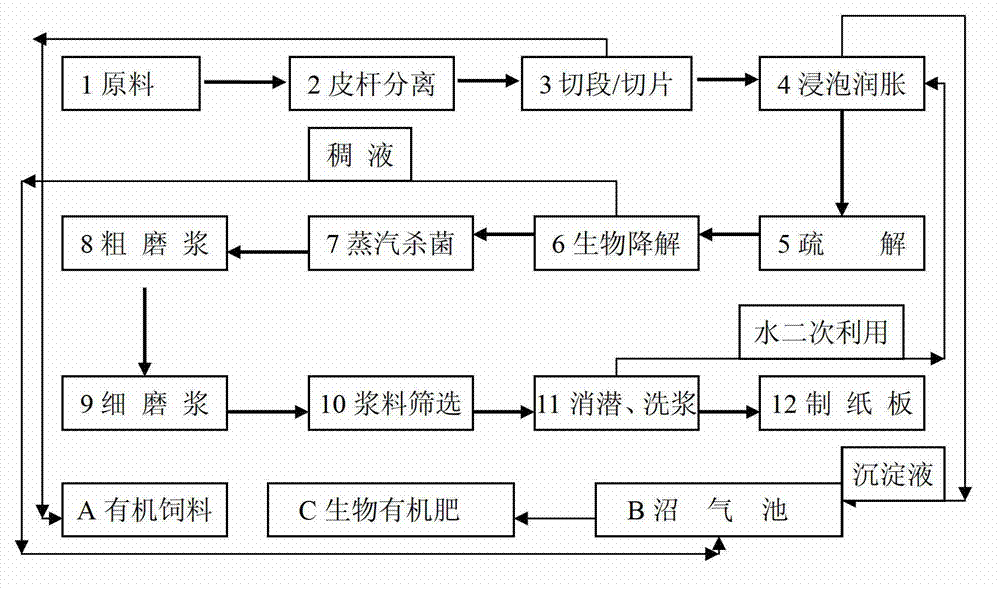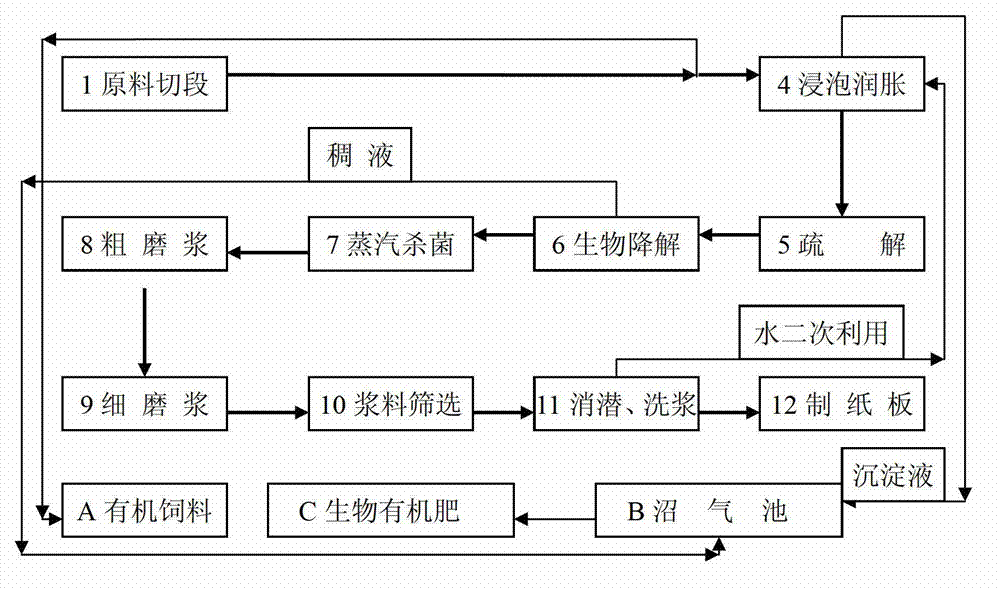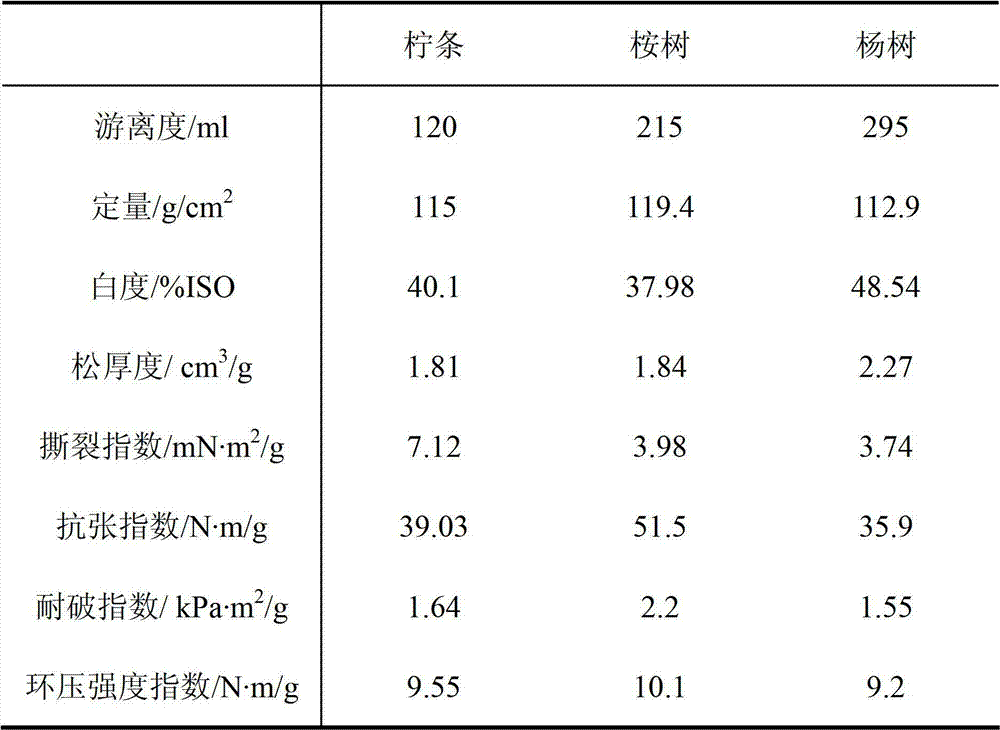Compound bacteria and application in biological bacteria liquid pulping technology of compound bacteria
A technology of complex flora and biological bacteria, applied to fertilizers made from biological waste, methods based on microorganisms, applications, etc., can solve problems such as difficult actual production, low fiber purity, long reaction time, etc., and achieve coal saving Quantity, reduced reaction time, and low production cost
- Summary
- Abstract
- Description
- Claims
- Application Information
AI Technical Summary
Problems solved by technology
Method used
Image
Examples
Embodiment 1
[0031] Example 1 Configuration of Bacteria Solution
[0032] The biological flora used in the present invention has been preserved on April 6, 2012 at the General Microbiology Center (CGMCC, No. 3, No. 1, Beichen West Road, Chaoyang District, Beijing) of the China Microbiological Culture Collection Management Committee, and the preservation number is Bacillus sp. of CGMCC No.5971, Rheinheimera tangshanensis of CGMCC No.5972, Acinetobacter lwoffii of CGMCC No.5973, and No. CGMCC No. 5974 Pseudomonas fluorescens.
[0033] The above-mentioned composite bacteria group is configured into a composite bacteria aqueous solution according to the following mass ratio, which is the bacterial solution:
[0034] Bacillus: Rheinrichia Tangshan: Acinetobacter ruckeri: Pseudomonas fluorescens is 1-3:1-3:1-2:1-2; the density of the formed bacterial liquid is 6×10 7 More than one / ml bacteria, spare.
Embodiment 2
[0035] Example 2 Pulping of woody raw materials with biological bacteria solution
[0036] Caragana is used as raw material, and the pulping method of biological bacteria liquid when woody raw materials are used is specifically described. The biopulping method of other woody raw materials, such as poplar and eucalyptus, can be carried out with reference to this process.
[0037] When caragana is used, the composite flora is configured according to the following mass ratios:
[0038] Bacillus: Rheinrichia Tangshan: Acinetobacter ruckeri: Pseudomonas fluorescens is 3:1:2:2;
[0039] When poplar is used, the composite flora is configured according to the following mass ratios:
[0040] Bacillus: Rheinrichia Tangshan: Acinetobacter ruckeri: Pseudomonas fluorescens is 3:2:1:2;
[0041] When eucalyptus is used, the composite flora is configured according to the following mass ratios:
[0042] Bacillus: Rheinrichia Tangshan: Acinetobacter ruckeri: Pseudomonas fluorescens is 2:2:1...
Embodiment 3
[0065] Example 3 Pulping of herbal raw materials with biological bacteria solution
[0066] Using wheat straw as a raw material, the pulping method of biological bacterial liquid when using the herbal raw material is specifically described. The biopulping of other herbal raw materials, such as wheat straw, rice straw, and corn stalks, can be carried out with reference to this process.
[0067] When wheat straw is used, the composite flora is configured according to the following mass ratios:
[0068] Bacillus: Rheinrichia Tangshan: Acinetobacter ruckeri: Pseudomonas fluorescens: 2:2:1:2;
[0069] When straw is used, the composite flora is configured according to the following mass ratios:
[0070] Bacillus: Rheinrichia Tangshan: Acinetobacter ruckeri: Pseudomonas fluorescens 1:3:1:2;
[0071] When corn stalks are used, the composite flora is configured according to the following mass ratios:
[0072] Bacillus: Rheinrichia Tangshan: Acinetobacter ruckeri: Pseudomonas fluore...
PUM
 Login to View More
Login to View More Abstract
Description
Claims
Application Information
 Login to View More
Login to View More - R&D
- Intellectual Property
- Life Sciences
- Materials
- Tech Scout
- Unparalleled Data Quality
- Higher Quality Content
- 60% Fewer Hallucinations
Browse by: Latest US Patents, China's latest patents, Technical Efficacy Thesaurus, Application Domain, Technology Topic, Popular Technical Reports.
© 2025 PatSnap. All rights reserved.Legal|Privacy policy|Modern Slavery Act Transparency Statement|Sitemap|About US| Contact US: help@patsnap.com



